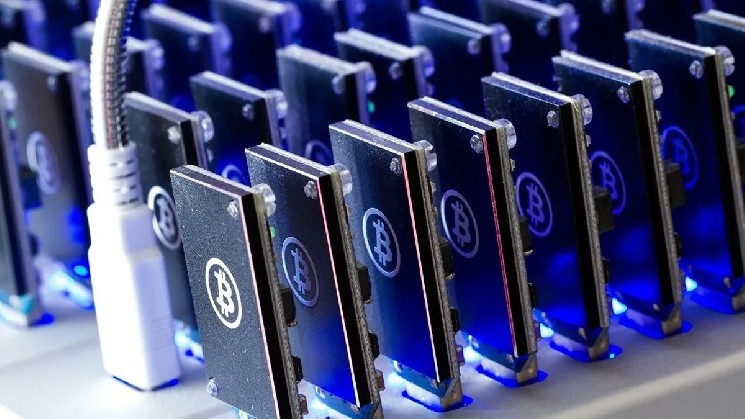Ethiopia’s Dam Powers 18% Revenue Through Bitcoin Mining

- Ethiopia’s Grand Renaissance Dam powers Bitcoin mining, generating 18% of Ethiopian Electric Power’s revenue from digital assets.
- Renewable energy fuels Bitcoin mining in Africa, driving economic growth and funding impactful projects like conservation in Virunga Park.
Ethiopia has leveraged its enormous hydroelectric power, particularly from the Grand Ethiopian Renaissance Dam (GERD), for Bitcoin mining. Now with 18% of Ethiopian Electric Power’s (EEP) income coming from Bitcoin mining, the nation has turned its idle energy into a profitable digital asset.
A stunning $1 billion has been spent on Bitcoin mining activities during the past year, more than the profits from exporting power to surrounding nations.
Africa’s Crypto Power Play: Where Energy Meets the Blockchain
Africa’s got the juice – and crypto’s tapping in.
Ethiopia’s Grand Renaissance Dam is flipping unused power into digital gold, with 18% of Ethiopian Electric Power’s sales now coming from bitcoin mining.
That’s a… pic.twitter.com/rYifnPFUmN
— Mario Nawfal’s Roundtable (@RoundtableSpace) December 25, 2024
Ethiopia: Competitive Energy Strategy and Regional Impacts
Securing deals with 25 BTC mining businesses, the Ethiopian government has welcomed this change and generated tens of millions of dollars in income over a few months. These agreements draw international miners in addition to helping the nation make money off of its excess of electricity.
With about 3.2 cents per kilowatt-hour, Ethiopia’s electricity tariffs are among the most competitive worldwide, which attracts miners looking for reasonably priced options. Ethiopia is positioned as a growing center for bitcoin activities because of this flood of foreign investment, especially from nations like China following their mining regulation crackdown.
Elsewhere on the continent, the inclusion of Bitcoin mining with renewable energy initiatives has produced significant environmental and social effects. Microgrids run on renewable energy are supplying electricity to rural communities in Kenya and Zambia, therefore enabling development in hitherto neglected areas.
Concurrent with this is the famous Virunga National Park in the Democratic Republic of the Congo using Bitcoin mining to support environmental projects. The park makes a large monthly income from using hydroelectric power, which is utilized to support local businesses like cocoa processing as well as pay staff wages and maintain infrastructure.
African nations are not the only ones using mining for these transforming purposes. Globally, it emphasizes how using sustainable energy sources combined with crypto operations could propel economic development.
But as Ethiopia’s ambitious projects develop, they also highlight the wider consequences of bitcoin mining and its influence on policy on green energy.
On the other hand, CNF previously underlined that public Bitcoin miners worldwide have accumulated $5 billion in 2024 and reinvested $3.6 billion into infrastructure and hardware development.





 Bitcoin
Bitcoin  Ethereum
Ethereum  Tether
Tether  Dogecoin
Dogecoin  USDC
USDC  Cardano
Cardano  TRON
TRON  Chainlink
Chainlink  Stellar
Stellar  Hedera
Hedera  Bitcoin Cash
Bitcoin Cash  LEO Token
LEO Token  Litecoin
Litecoin  Cronos
Cronos  Ethereum Classic
Ethereum Classic  Monero
Monero  Dai
Dai  OKB
OKB  Algorand
Algorand  Cosmos Hub
Cosmos Hub  Stacks
Stacks  Theta Network
Theta Network  Gate
Gate  Maker
Maker  Tezos
Tezos  KuCoin
KuCoin  IOTA
IOTA  NEO
NEO  Zcash
Zcash  Polygon
Polygon  Synthetix Network
Synthetix Network  Tether Gold
Tether Gold  TrueUSD
TrueUSD  Dash
Dash  Holo
Holo  Zilliqa
Zilliqa  0x Protocol
0x Protocol  Enjin Coin
Enjin Coin  Basic Attention
Basic Attention  Qtum
Qtum  Siacoin
Siacoin  Ravencoin
Ravencoin  Decred
Decred  NEM
NEM  Ontology
Ontology  DigiByte
DigiByte  Huobi
Huobi  Nano
Nano  Bitcoin Gold
Bitcoin Gold  Status
Status  Lisk
Lisk  Waves
Waves  Hive
Hive  Numeraire
Numeraire  Steem
Steem  Pax Dollar
Pax Dollar  BUSD
BUSD  OMG Network
OMG Network  Ren
Ren  Bitcoin Diamond
Bitcoin Diamond